The Indian diaspora: A tech 'Mafia'?
One of our TEN13 deal team, Lachlan Duffy, kicks off a two-part series on global technology talent flows in our borderless tech world. In Part 1, Lachlan looks into the Indian executives dominating Silicon Valley and what it means for India's local tech scene.
The flow of talent from emerging markets is a curious one. In today’s interconnected world, the international talent market operates much like the English Premier League; it has no salary cap, no borders and the world’s best talent can go wherever they want. Markets such as the US have the advantage of infrastructure, systems, operations, culture, talent, and capital density and have historically been able to outbid basically anyone else and consistently acquire the world’s best talent.
There’s always been something about the immigrant mindset. There’s something about the agency from moving countries that breeds a desire to truly make something of oneself and one’s family in a new country. The US has had the pick of the world’s highest agency migrants for coming up on the third century in a row. Immigration has fuelled American exceptionalism, with new recruits outgunning local US competition at almost twice the rate.
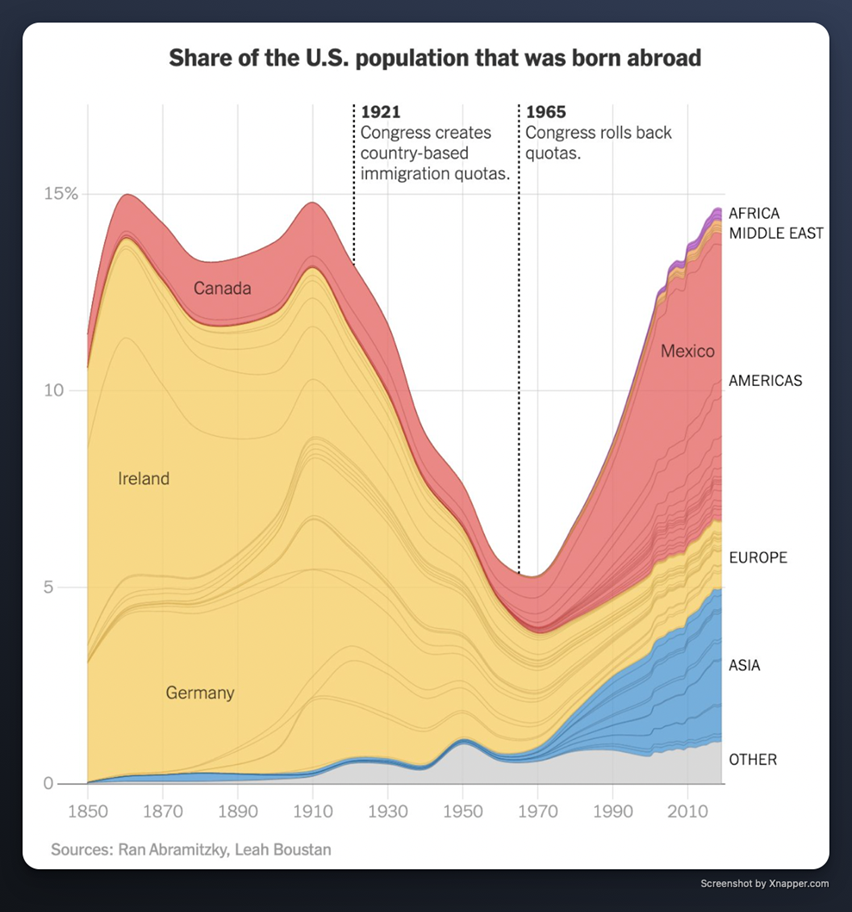
The Indian Diaspora: A ‘Mafia’?
The US has been a major beneficiary of Indian migration for many years now and the US has cashed in. The US has Indian CEOs for 12 of the largest technology companies in the world. The Indian diaspora migrant 'Mafia' with its seemingly endless stream of elite global talent is only set to increase.
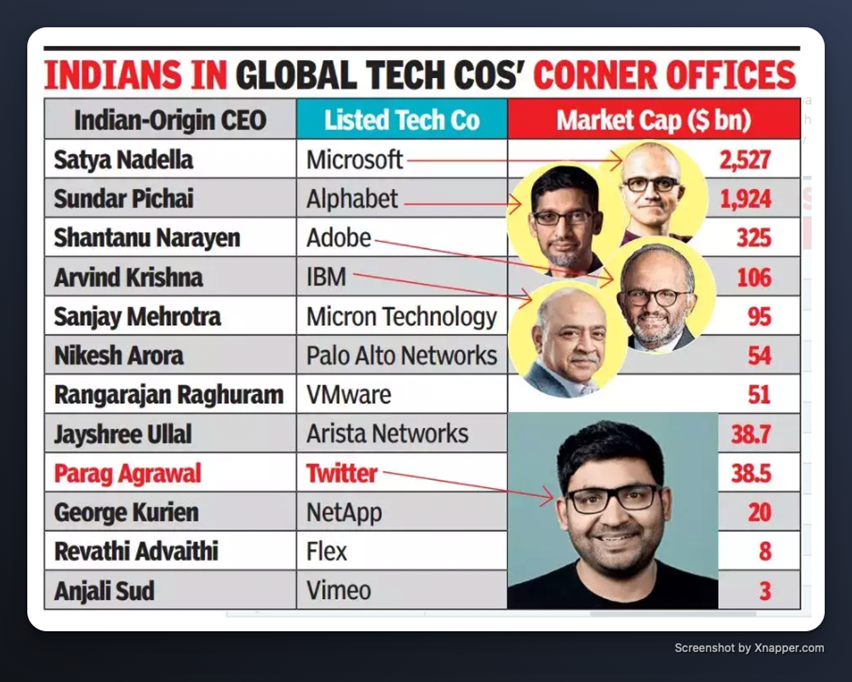
The Indian diaspora is being unlocked and in a very competitive global market hungry for talent, India is providing big time. We will be seeing more and more Indian Global Tech and Fortune 500 CEOs.
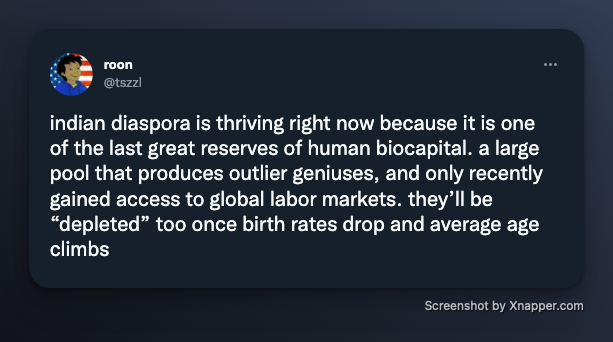
Closer to home, India recently celebrated their 100th technology 'unicorn' (Billion dollar private company) and is now third on the list of countries with the number of 'unicorns' behind the US and China. A remarkable achievement for any country, and with more and more outlier geniuses gaining access to global talent markets every year, India and its diaspora look set for a roaring 2020s.
In fact, 44% of America’s unicorn founders were founded by people born outside of the US, as shown below. Ironically, when you remove 44% of America’s unicorns founded by people born outside the US and repatriate them, the US’s number of unicorns starts to look a lot more like China’s number of unicorns.
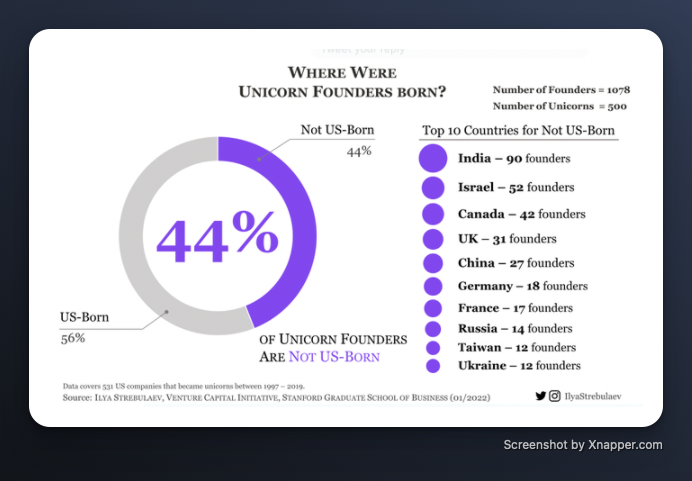
Incredibly, while India has 100 'unicorns', the US itself has 90 Indian unicorn founders, with many more likely ‘US-born’ founders being second-generation Indian immigrants.
India has a far greater ratio of US-unicorn founders to its country's total unicorns than China, which accounts for ~2.5% of US-unicorn founder ranks. In fact, out of the list, India has the worst ratio of unicorns founded at home (100) to US unicorns with a founder from that country (90), except Canada, based on the data above. Put differently, every other country has a higher ratio of its nationals building world-leading companies from their home countries and not from outside.
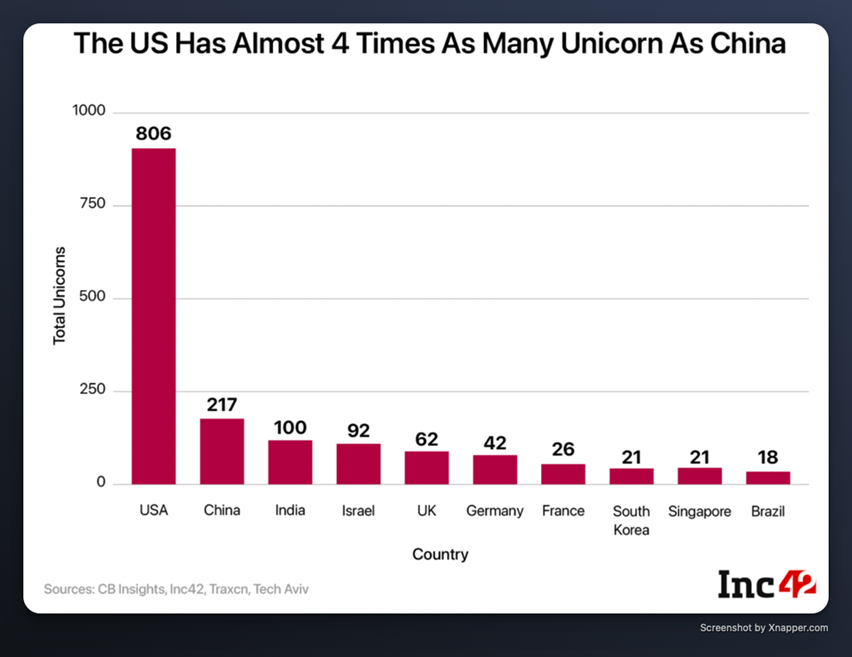
American Exceptionalism in global technology has been one of the defining features of this century. Lesser known is that almost half of it is underwritten by attracting non-US-born talent, with former Indian talent helping build the world’s best companies on US soil.
Despite many of the Indian diaspora building world-leading companies from outside India, India has still managed to take out the #3 position in Unicorn producers.
But for emerging economies it does pose an interesting question - in today’s international talent market, how can you help your best and brightest nationals to build world-leading companies at home and not abroad?
Stay tuned for Part Two as we investigate how a 150-year-old idea is seeing migration flow back.
In the picture: Shantanu Narayen, CEO, Adobe; Satya Nadella, CEO, Microsoft; Sundar Pichai, CEO, Alphabet
Never miss an insight
If you're not an existing Livewire subscriber you can sign up to get free access to investment ideas and strategies from Australia's leading investors.
And you can follow my profile to stay up to date with other wires as they're published – don't forget to give them a “like”.
1 topic